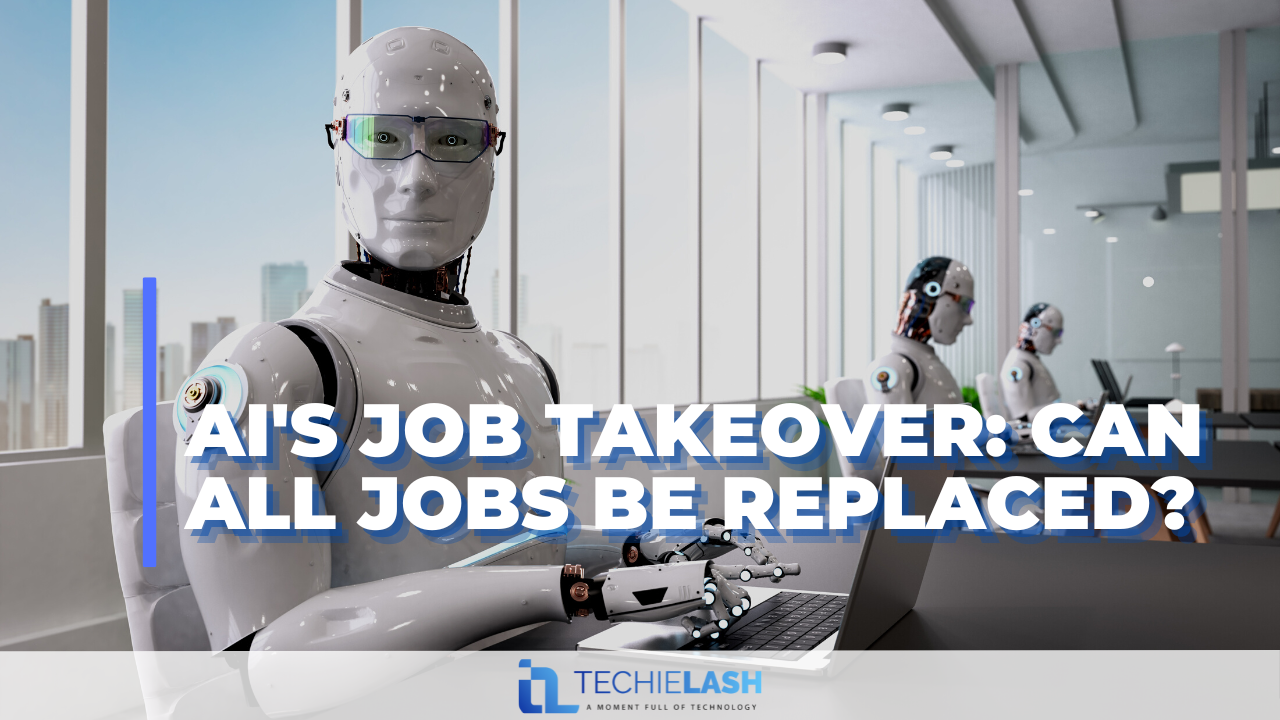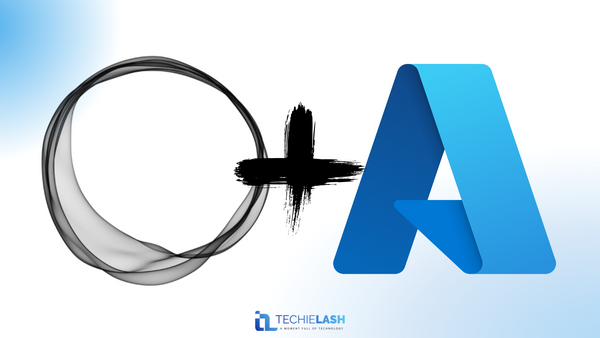AI's Job Takeover: Can All Jobs Be Replaced?

What is sophisticated automation?
Intelligent automation (IA), also known as cognitive automation, is the use of automation technologies. Examples are business process management (BPM), robotic process automation (RPA), and artificial intelligence (AI). These are used to scale and streamline decision-making throughout businesses
What is AI?
AI is a rapidly developing technology. Also, it has the potential to increase worker productivity. Not only that, increase business efficiency and foster development. AI can potentially be used to automate existing employment, increase inequality, and discriminate against employees, all at the same time.
So, actually, can AI replace a human?
Automation won't take the place of high levels of human contact, strategic interpretation, critical thinking, specialized talents, or subject matter expertise any time soon. For instance, professionals in law, leadership, medicine, healthcare, Technology, and human resources. We can automate practically every step of the contract workflow process, but we will still rely on human intervention to make arguments, build relationships during the negotiation stage, and uncover nuances in the data, according to Arjun Jolly.
Alexa or Siri is excellent at going along with your every request, but they cannot comprehend your emotions. Even the most cutting-edge technology will never be able to understand our emotions and react as effectively as a human. You need empathy to complete those tasks, whether you're a team leader guiding colleagues through a trying moment, an account manager engaging with clients, or a hiring manager searching for the ideal applicant.
Let’s look around these examples to get more confirmation.
Creative and artistic jobs
Positions requiring a high degree of imagination, creativity, and uniqueness include writing, art, and music. While AI is capable of creating material, it is not yet able to create original and distinctive work.
Trades that need a high level of technical competence and practical skills include mechanics, electricians, and plumbers. These positions call for human decision-making and problem-solving abilities, which are challenging for technology to imitate.
Careers requiring complicated decision-making: Senior executives, lawyers, and judges all require complex decision-making abilities that are challenging for technology to reproduce. These positions demand a thorough comprehension of intricate legal and business ideas as well as the capacity to handle complex situations.
Difficult decision-making
People in professions like medicine, law, and business management must make complex decisions regularly. Large-scale data analysis and interpretation, risk assessment, and context- and experience-based decision-making are all tasks that are challenging for automation or artificial intelligence (AI) to replace in these jobs.
Careers requiring creativity and adaptability
Marketing and product design jobs are two examples of jobs that are less likely to be automated. High levels of strategic thinking and the capacity for change are prerequisites for these positions.
Emotional intelligence
Professions requiring emotional intelligence include teaching, social work, and therapy since they entail working with people. Empathy, intuition, and the capacity to comprehend and react to human emotions and behavior are skills that are difficult for automation or artificial intelligence (AI) to imitate in these positions.
Writing, art, and music are examples of professions that call for creative thinking. These jobs entail producing unique and cutting-edge work. These positions call for ingenuity, innovation, and the capacity to problem-solve.
Physical aptitude
Hands-on work is difficult for automation or artificial intelligence (AI) to accomplish in jobs that need physical aptitudes, such as those of plumbers, electricians, and mechanics. These tasks call on dexterity, coordination, and problem-solving abilities that are difficult for technology to replace.
Professions that directly interact with people, such as those in customer service and personal care, require empathy, communication, and relationship-building abilities that are difficult for automation or artificial intelligence (AI) to mimic.
In conclusion, some vocations and abilities are too complex, distinctive, or human-centric to be easily replaced by automation or AI. These tasks may be improved by technology, but they will still require human judgment and competence for the foreseeable future.
Jobs or skills that are resistant to automation or artificial intelligence have several benefits, including:
More job security: As these positions need human judgment and knowledge, they are less likely to be automated, giving their employees higher job security than those in positions that are more amenable to automation.
More income potential: A lot of occupations that are challenging to automate, like those of a doctor, lawyer, or skilled tradesperson, call for higher education or training. These jobs frequently have better-earning potential than those that are easily automated as a result.
Increased job satisfaction: Compared to more task-oriented employment, positions that need human interaction, like teaching or counseling, frequently provide a stronger sense of fulfillment and purpose. Employees who are in these positions believe that their actions are improving the lives of others are more likely.
Flexibility and creativity: Innovation and adaptation positions are required. A good example of that is, in marketing or product design, which can provide more opportunities for both. These positions are more likely to allow employees can exhibit their abilities and ideas. And also they have autonomy over their work.
Connection with human beings: Helping others and establishing meaningful relationships are common ways for people in these occupations to find meaning and purpose.
So, here we can conclude, there are several benefits to having a profession. Some of them are difficult to automate, including increased job security, income potential, and job satisfaction. While automation and AI may have some effects on these jobs, they are likely to continue to play a significant role in the economy for some time to come.
Now take look at the possible drawbacks of human-powered jobs and skills:
High levels of education or training are necessary for many jobs that are difficult to automate, like those of doctors, attorneys, and engineers. This can be costly and time-consuming. This may reduce the diversity of the workforce in various professions and raise entry hurdles for some people.
Physical demands: Certain occupations that are challenging to automate, like nursing or construction, can be physically taxing and necessitate intense work from employees. This may result in illnesses or accidents at work.
Emotional demands: Human interaction-based jobs, like social work or counseling, can be emotionally taxing because they call for employees to both control their own emotions and support those of others. Burnout or emotional tiredness may result from this.
Dependence on a human mistake: Human error can occur in jobs that depend on human skill and judgment. For instance, a doctor could misdiagnose a patient or a lawyer could slip up in court, both of which could have dire repercussions.
Low scalability: These jobs are frequently not scalable since they depend on human skill and judgment. For instance, a therapist may find it difficult to serve the needs of a broader community since they can only see a certain number of patients each day.
According to all these things, in my opinion; think AI and automation can’t fulfill all duties in this world. So we need human empowerment to make this world a better place.





